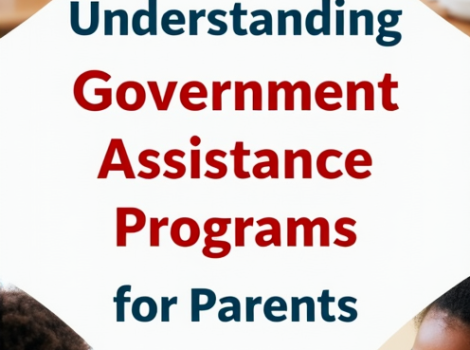Must-Have Tools for Tracking Your Child’s Development
When it comes to tracking your child’s development, having the right tools can make all the difference. From developmental milestone checklists to growth tracking apps, these resources can help you stay informed about your child’s progress and health. You’ll find that some tools offer visual representations of growth, while others remind you of important check-ups. However, with so many options available, it can be overwhelming to choose the best ones for your needs. So, what should you prioritize to guarantee you’re fully equipped to support your child’s journey?
Developmental Milestone Checklists
When it comes to tracking your child’s progress, developmental milestone checklists can be invaluable tools. These handy lists help you see what skills your little one should be mastering at each stage of their growth. From rolling over at a few months old to tying their shoes by age six, these milestones are like a roadmap for their development.
Using a checklist can make the whole process fun! You can celebrate each achievement together, turning it into a mini-party. Plus, you’ll get a clearer picture of where your child stands compared to typical development timelines.
Don’t worry if your child doesn’t hit every milestone exactly on time. Every kid is unique, and they all grow at their own pace.
If you notice any big gaps, it might be a good idea to chat with a pediatrician. They can offer helpful advice and support.
Growth Tracking Apps
Tracking your child’s growth has never been easier with the rise of growth tracking apps. These handy tools let you monitor your little one’s height, weight, and even head circumference right from your smartphone. Imagine having all that information at your fingertips! You can log your child’s measurements and compare them to growth percentiles, helping you understand if they’re on track.
Many apps also send you reminders for doctor visits, so you won’t forget those important check-ups. Plus, some of them offer tips for healthy eating and physical activities tailored to your child’s age. It’s like having a personal coach right in your pocket!
You can even share progress with family or friends, making it a fun way to celebrate milestones together.
And if you’re a parent who loves a good chart, you’ll enjoy the visuals these apps provide. It’s satisfying to see your child’s growth journey laid out in colorful graphs!
Parenting Journals
Parenting journals offer a wonderful way to document your child’s growth and development journey. You can think of it as a scrapbook for memories, milestones, and those little moments that make parenting so special. Writing down your thoughts and experiences not only helps you remember those precious times, but it also allows you to see how your child changes over the years.
You can jot down everything from their first steps to funny things they say. Plus, it’s a great way to track their emotions and behaviors. You might even notice patterns that can help you with parenting challenges. And trust me, those notes will make you smile when you look back years later!
You don’t have to be a great writer, either. Just be yourself! Use doodles, stickers, or even photos to spice things up. Make it your own.
Plus, when you share your journal with your child later, it can spark wonderful conversations. So grab a notebook or a cute journal, and start writing! It’s a fun, rewarding way to celebrate your child’s journey while keeping your memories alive.
Happy journaling!
Educational Websites and Resources
As you document your child’s milestones and memories, consider the wealth of information available online through educational websites and resources. These sites can help you understand your child’s development and provide activities that match their age. Think of it as your digital treasure chest!
You’ll find interactive games, videos, and worksheets that make learning fun and engaging. Websites like PBS Kids and National Geographic Kids offer exciting content that keeps your little one entertained while learning. Plus, you can explore resources tailored to specific developmental stages, ensuring you’re on the right track.
Don’t forget about parenting blogs and forums! They often share tips, experiences, and advice from other parents, turning your online journey into a community adventure. You can ask questions, share ideas, or even just vent about the chaos of parenting—trust me, we’ve all been there!
And let’s not overlook the vast array of e-books and audiobooks available. They can inspire a love for reading in your child, helping them grow intellectually.
Pediatric Health Monitoring Tools
Keeping an eye on your child’s health is essential for their overall well-being. Pediatric health monitoring tools can help you do just that! These handy gadgets and apps make tracking your child’s growth and health milestones a breeze.
For instance, smart thermometers can give you instant readings, so you won’t have to guess if that forehead feels warm or could double as a frying pan.
Weight and height trackers are also great. You can easily plot your child’s growth on a chart and see if they’re following a healthy pattern. Plus, some apps even let you compare their growth with other kids the same age. It’s like having a mini pediatrician right in your pocket!
Don’t forget about the importance of vaccinations, too. Many tracking tools remind you when those important shots are due. This way, you can avoid that last-minute rush to the clinic.
Incorporating these tools into your routine makes it easier to keep tabs on your child’s health. With a little help from technology, you’ll feel more confident about your parenting journey, and your child will thrive!
Interactive Learning Toys
Monitoring your child’s health is just one part of supporting their development; interactive learning toys play a significant role in fostering their cognitive and social skills.
These toys aren’t just for playtime; they’re like secret agents of learning! When your child interacts with puzzles, building blocks, or electronic games, they’re not just having fun—they’re solving problems, improving their memory, and even learning to cooperate with others.
Think about it: when your little one works on a toy that requires them to match shapes or count objects, they’re practicing math skills without even realizing it.
Plus, many interactive toys encourage teamwork. When kids play together, they learn how to share, communicate, and even negotiate who gets to be the superhero in the game!
Professional Development Assessments
To support your child’s growth effectively, professional development assessments are essential tools for gauging their progress and identifying areas that need attention.
These assessments help you understand how your child is developing in various skills, like language, motor abilities, and social interactions. Think of it as a health check-up for their learning!
You might wonder where to start. Many schools offer assessments, or you can find professionals who specialize in child development.
These assessments are usually fun and engaging, ensuring your child feels comfortable while you learn about their skills. Plus, they give you valuable insights, allowing you to focus on what your child needs most.
Don’t worry; it’s not all about tests and numbers! These evaluations are meant to help you celebrate your child’s strengths and pinpoint areas for growth.
You can then work on these together, making learning a fun adventure.
Community Support Groups
While assessments provide valuable insights into your child’s development, community support groups can enhance that understanding by connecting you with other parents and professionals.
These groups create a warm, welcoming space where you can share experiences, challenges, and successes. You’ll find comfort in knowing you’re not alone in this journey.
Joining a support group offers you access to a wealth of knowledge. You can learn about resources, strategies, and tips from others who’ve been in your shoes.
Plus, you’ll gain different perspectives on common issues. This camaraderie can help lighten the sometimes heavy load of parenting.
Don’t forget the emotional boost! Laughing with others who get it, and sharing a tear or two, can help you feel more connected and understood.
You might even make lifelong friends along the way.
Whether you join an online forum or a local meetup, community support groups are an invaluable tool for your child’s development.



